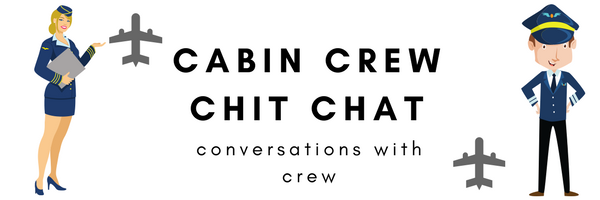
“She got offered Sydney base and took it. Good on her…she really wanted it that badly. Personally, I could never do it. Spend all that money just to get to work and essentially your whole life on a plane? Thanks but no thanks…”
A daily commute of some sort to get to work is part and parcel for almost everyone in the workforce, but for flight crew – captains and flight attendants, commuting is somewhat more extreme. Commuting doesn’t mean simply driving to the airport, it means getting to the airport then taking a flight several hundred (sometimes even several thousand kilometres!) to your base city before signing on for duty.
While it might sound outrageous, it’s actually an extremely common thing among both cabin crew and the men and women flying the plane. In fact, in the world of flying where many, if not all shifts are several days and less shifts per month than other workers, living a one or two hours drive away from work is normal. There’s an extra freedom to being a flight attendant to being able to live in a city that’s not your home base. I personally heard a story about a senior British Airways crew member living on the Gold Coast in Australia commuting to London a couple of times of roster. Granted, she was only part time, could choose her routes and when she worked them and was on a pretty plum financial package. Insane in the membrane or working it to her advantage? You be the judge…
The problem is that a seat on your commuter flight to is not guaranteed so there’s a stressful element to getting to work, and then getting home again. Imagine the scenario of arriving back to base in the evening after 14-hour duty and then bad weather closes the airport and you’re still not home, or more likely, the last two flights of the day back to your home city are completely full. Such are some of the nightmare situations commuters can find themselves faced with, all while being fatigued and feeling like death warmed up.
So Why Would Flight Attendants Commute?
Even so, many flight attendants justify commuting for many reasons. These include:
- Most of the best flying jobs are in the major cities where airlines have their largest bases. This means more positions, and bases that have flights to more destinations. For many reasons not everyone is in a position to relocate.
- It can be cheaper living in a smaller city and using your staff travel benefits to fly to work rather than rent in some of the world’s most expensive cities like Hong Kong, Singapore, Sydney and New York. Especially for many rosters it seems pointless to pay expensive rent when for extended periods you are rarely home.
- The position. Cabin crew jobs can be extremely competitive – especially the international routes. Crew, especially cabin managers or pilots who have had a promotion may not get offered their first port preference, so commuting until a base transfer becomes available makes a lot of sense.
- They can arrange their roster in a way that lends itself to commuting. This can mean fewer but longer trips each roster, or trips scheduled close together to avoid less flying backwards and forwards between home and base city.
- Commuting allows flight attendants to still do the job they love but live miles away from their base in a location that fits in with their family or lifestyle requirements. Not everyone wants to live in a big city – commuting means you can live a quiet life in the country and visit exotic destinations on your work trips.
What Do You Have To Weigh Up?
- The Cost. Before committing to the commute, it is important you crunch the numbers. How much will it cost in flights with staff travel each trip? Will you need accommodation in your base city whether in a hotel or a crew crash pad or do you have somewhere you can stay with?
- The Logistics. Will you often sign on early in the morning? Will this mean you have to go down the night before to ensure you make it to your duty on time. If so, where will you stay? And what will this cost.
- The Roster. Some rosters and work contracts for flighties makes commuting more viable than others. For example if you normally do trips longer than 5 days. If however, you do more trips, it might make more sense moving to your base city.
- The Time Away From Home. Commuting means extra time away in a job that already takes us away from our loved ones. But are you unattached and don’t mind being on the go?
And of course finally you how much you want the job. Sometimes that’s all that needs to be said. After all, commuting a couple of hours at the beginning and end of each shift may allow you to have a job that lets you be paid for travelling the world with a bunch of great friends while still living in a ol
Commuting is a very personal choice with crew on each side of the fence. The idea can be daunting but for many it’s a way of life they soon get used to. Have you commuted? What worked and what didn’t?
“I commuted for 15 years. You get used to it. There’s heaps of ways to make it work. But would I do it again? Not by choice put it that way….”
